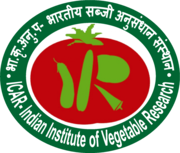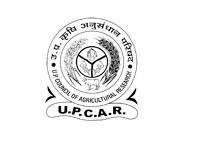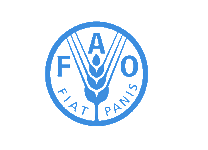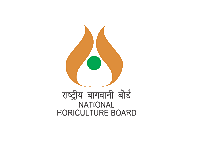-
भारत सरकारGOVERNMENT OF INDIA
-
कृषि और किसान कल्याण मंत्रालयMINISTRY OF AGRICULTURE AND FARMER'S WELFARE
Director's desk

Dr. N. Rai, Director
Amidst the pandemic crisis due to Covid-19, nutrition can play a pivotal role in boosting the fragile immune system. We need to be more prepared than ever before and work towards protecting communities by eating nutritious balanced diets. When we think of healthy eating, the first food items that often come to our mind are vegetables which are rich sources of vitamins, minerals, fibre and antioxidants; they are vital for the proper functioning of the human body. The vegetable sector contributes to increasing biodiversity, generating environmental sustainability and improving the livelihoods of farmers. Production of vegetables in India is making new records every year, thus, becoming most favoured agricultural commodity by the farmers. The production during 2019-20 was recorded as 191.77 million tonnes from 10.4 million hectare area, which was only 20 million tonnes at the time of independence. With the projected population of 1.5 billion by 2030, we need to produce 210 million tonnes of vegetables, as per dietitians’ recommendations, to meet the rising demand for more from less resources.
The targeted production needs to be achieved through utilising scientifically proven technologies and modern tools. To hasten the process and enhance breeding efficiency of development of futuristic varieties/hybrids resistant to diseases and insect pests, tolerant to abiotic stresses, nutrient use efficient, micronutrient rich, enhanced shelf life and industrial suitability, efforts would be stepped up on employing new breeding techniques. Good agricultural practices (GAP) for controlling insect pests and diseases, better water and nutrient use efficient methods, good soil management and conservation practices are necessary to enhance plant health and safe vegetable production. The technologies are needed to reduce postharvest losses and human drudgery, improve storage, transport and processing parameters in order to preserve nutrient content, flavour and taste.
Since inception of IIVR in 1992, this institute has played a significant role in developing improved varieties/hybrids, innovative production and protection technologies and their dissemination to end users. As a result, the institute’s varieties and other technologies have reached almost every nook and corner of the country benefitting farmers.
I hope, with the energetic scientific, administrative and field staff of the institute, we will further scale new heights.
With best regards,
Dr. N Rai

Email ID: director.iivr@icar.gov.in
nrai1964@gmail.com
M.Sc: GBPU&T Udhansingh Nagar, Uttrakhand
PhD: BHU, Varanasi, UP
Post Doc (if any):
KK Rai, N Rai Mohd Amir, Deepika Tripathi, Shashi Pandey Rai (2020). Interactive role of salicylic acid and nitric oxide on transcriptional reprogramming for high temperature tolerance to lablab purpureusL. Structural and functional in sights using computational approaches. Journal of Biotechnology, 309: 113-130.
Rai KK, N. Rai and SP Rai (2019).Prediction and validation of DREB transcription factors for salt tolerance in Solanum lycopersicum L. An integrated experimental and computational approach. Environmental and Experimental Botany, 165: 1-18.
Rai KK, N Rai and SP Rai (2018). Salicyclic acid and nitric oxide alleviate high temperature induced oxidative damage in Lablab purpureus L. plants by regulating biophysical process and dna methylation.Plant Physiology and Biochemistry, 128: 72-88.
KK Rai, N Rai and SP Rai (2018). Response of Lablab purpureus L. to high temperature stress and role of exogenous protectants in mitigating high temperature induced oxidative damages. Molecular Biology Report, dio.org/101007/s/1033-018-4301.
KK Rai, N Rai, SP Rai (2018). Recent advancement in modern genomic tools for adaption of Lablab purpureus L to biotic and abiotic stresses: Present -6 mechanism and future adaptions.Acta Physiologiae Plantarum, 40-164, dio.org.1007/s11738-018-2740.
Singh AK, N Rai, RK Singh, RK Rai, S Saha and Singh RP (2017). Genetics of resistance to early blight in crosses of wild derivatives of tomato. Scientia Horticulturae, 219:70-78
Rai N, KK Rai, V Venkataravanappa and Sujoy (2016). Molecular approaches coupled with biochemical attributes to elucidate the presence of DYMV in leaf sample of Lablab purpureus L. genotypes. Applied Biochemistry and Biotechnology,DIO 10-10071s 2010-015-1915-5.
Rai N, KK Rai, G Tiwari and PK Singh (2015). Changes in free radical generation, metabolites and antioxidant defence machinery in hyacinth bean (Lablab purpureus L) in response to high temperature stress. Acta Physiologia Pantatrum, 37:46 (DOI 10.1007/s11738-015-1791-1).
Rai RK, N Rai, J M Lima, M Singh, SN Singh and S Kumar (2015). Genetic and molecular characterization of tomato leaf curl virus (ToLCV) resistance in tomato. The Journal of Horticultural Science & Biotechnology, 90(5):503-510.
Singh RK, N Rai, M Singh, P Kumar and K Shrivastav(2014). Selection of tomato genotypes resistant to tomato leaf curls virus disease using biochemical and physiological markers. Journal of Agricultural Sciences (Cambridge), 1-10.
- Tomato: Maniliema, Kashi Chayam, Kashi Adbhut, Kashi Tapas
- Indian bean: Kashi Haritima, Kashi Khushaal, Kashi Sheetal, Kashi Bouni Sem-3, Kashi Bouni Sem-9, Kashi Bouni Sem-18, Kashi Bouni Sem-14, Kashi Bouni Sem-207
- French bean: Kashi Sampann, Kashi Rajhans
- Cowpea: Kashi Nidhi, Kashi Vishan
- Generated 15technologies on different aspects of production in 10vegetable crops like tomato, brinjal, French bean, watermelon, bitter gourd, bottle gourd, colocassia, sweet potato, ginger and turmeric for different agro-climatic condition.
- Awards: Kirti Singh Life time Achievement Award, Harbhajan Singh Memorial Award, Research Paper Reviewer Award, Best Research Paper Presentation Award, HTH Gold Medal, Year of the Scientist Award, Distinguished Scientist Award, Young Scientist Associate Award, Crop Research Award, etc
- Recognitions: Teaching Faculty Member in Division of Vegetable Crops, IARI, New Delhi, Research Advisory Committee Member of ICAR- National Research Centre on Seed Spices, Ajmer, Editor of Hi- Tech Horticulture& Current Horticulture, Joint – Editor of Vegetable Science, recipient of Best Research Worker Appreciation Letter, Gold Medal in Vegetable Science B.H.U. Fellowship, Junior Research Fellowship, ICAR Fellowship, National Scholarship etc. Advisor: STEM Institute, Varanasi; Agrimitra Farmer Producer Company Ltd. Mirzapur; Gautam Kalloo Research and Development Foundation, Varanasi.
- Fellows: National Academy of Agricultural Sciences, International Society of Noni Sciences, Society for Horticulture Research and Development, Uttar Pradesh Academy of Agricultural Science, Indian Society of Vegetable Science












